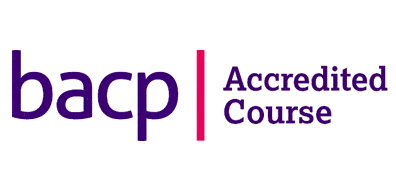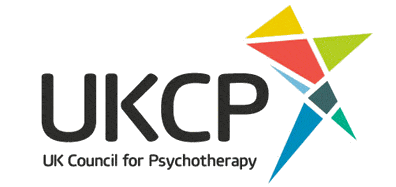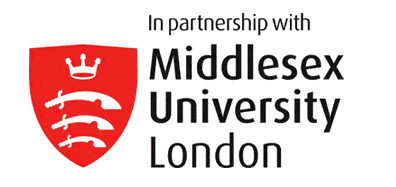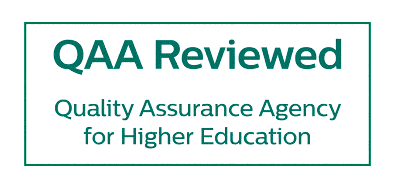About the Course
This course is designed for practicing psychotherapists and counsellors who want to develop their professional skills to offer clinical supervision. The programme will allow counsellors and psychotherapists from any modality to train as supervisors.
This course provides a solid foundation in the theory and practice of supervision drawing on the model outlined by Shohet & Hawkins in Supervision in the Helping Professions (2002) and the developmental model proposed by Stoltenberg and McNeill. It provides a structure which contains theoretical, experiential and practice components and aims to enable the supervisor to work with counsellors and/or psychotherapists who may have trained in a variety of different orientations.
Course Content
Two core academic modules which develop students’ in-depth knowledge of the main theoretical concepts of effective supervision plus opportunities for students to integrate this knowledge into their practice.
Skills-in-practice component which lays the foundations for effective and ethical supervisory practice and explores supervisory procedural issues relating to clinical responsibility, contracting, risk assessment, auditing and professional record keeping.
Forms of assessment include a 4000 word essay, a Portfolio containing supervision logs and a progress report.
This course requires that the student engages in a minimum of 40 hours supervision practice and 20 hours supervision of supervision.
Supervision Practice and Placements
Students will agree suitable supervisee and supervision of supervision arrangements with course tutors. Students may use work undertaken with supervisees in their private practice or with supervisees in the course of their employment (with suitable agreement with their employers) or supervisees seen in placements. Students are responsible for securing a placement but will receive advice and guidance from the Placement Coordinator.
Accreditation
The course meets both the UKCP requirements for supervision training and the BACP Counselling Supervision Training Curriculum. In order to be placed upon the UKCP Directory of Supervisors you’ll have to be a UKCP registrant.
On successful completion of the Minster Centre Diploma in Supervision you can be nominated to the UKCP Directory of Supervisors through your membership organisation.
If you are a BACP accredited therapist you need to go directly to the BACP and go through their processes in order to become a BACP accredited supervisor.
Assessment
Assessment is by Minster Centre staff. In addition to formal assessment of essays, tutors and supervisors assess students’ experiential and clinical work.
Course Leader(s)
Roshmi Lovatt and Reena Shah
Course Dates and Times
The teaching takes place over weekend blocks: Saturdays and Sundays 10.00am – 5.00pm.
Dates for 2025:
Dates for students starting January 2025:
18, 19 January 2025
22, 23 February 2025
15, 16 March 2025
12, 13 April 2025
10, 11 May 2025
14, 15 June 2025
12, 13 July 2025
Course Length
7 weekends January to July, plus supervision practice and written work to be completed over 1 year.
Who Is It For
Practising counsellors and psychotherapists who wish to obtain a supervision qualification.
Entry Requirements
Applicants need to possess a professional qualification in counselling/psychotherapy (BACP, UKCP accredited or equivalent) and have been in practice for at least three years.
Students will need to practise supervision or work in a supervisory capacity during the course. Students gain most from the course if the supervision placement or work is arranged prior to, or as near to the start of the course as possible. The Minster Centre can assist with suggesting practice placements.
You will need an enhanced Disclosure and Barring Service (DBS) check, if you don’t already have one. Having a criminal record will not necessarily prevent you from becoming a counsellor or psychotherapist each case is considered on an individual basis. You will be given an opportunity at your selection interview to discuss this with your interviewers. For more information about DBS checks see here.
Applicants need the technical ability to work online and have a private space to attend online training sessions and for online/phone therapy sessions, if remote client work at the student’s home is required.
Qualifications
Minster Centre Diploma in Supervision
Career Prospects
Graduates of The Minster Centre can be found working successfully all over the UK and abroad. As well as private practice, graduates often work with a variety of client groups in the NHS; in schools, colleges and universities; organisations such as Mind and other charitable foundations; and as tutors in other training organisations.
Fees
We offer a 15% discount to Minster Centre members (graduates and those who maintain their UKCP membership through the Centre).
For a full breakdown of the course fees and financial terms and conditions please click on the Fees button below:
Venue
The Minster Centre is a 5 minute walk from Queens Park Tube (Bakerloo line) and Rail Overground Station and 10-15 min walk from Brondesbury Park Station.
How to Apply
You apply directly to The Minster Centre via the online application form below. Please note: we operate a rolling admission process. Early application is recommended.
Please ensure each section is fully completed in order for your application to be considered for this course. If you have any further questions please see our FAQs page or email us on [email protected].
Applicants are offered an individual interview with a senior staff member in order to assess suitability for training. The interview fee is £135.
We particularly welcome applications from people from ethnic minority backgrounds and people with disabilities, as they are currently under-represented at the Minster Centre and in the psychotherapy profession.
Please note that initial assessment of applications can take from two to four weeks to complete. For shortlisted applications, interviews will be scheduled in the autumn term, from September onwards.
JANUARY 2025 UPDATE: The 2025 course has started and you can no longer apply at this time. We will be opening applications for the 2026 course later in the year.





